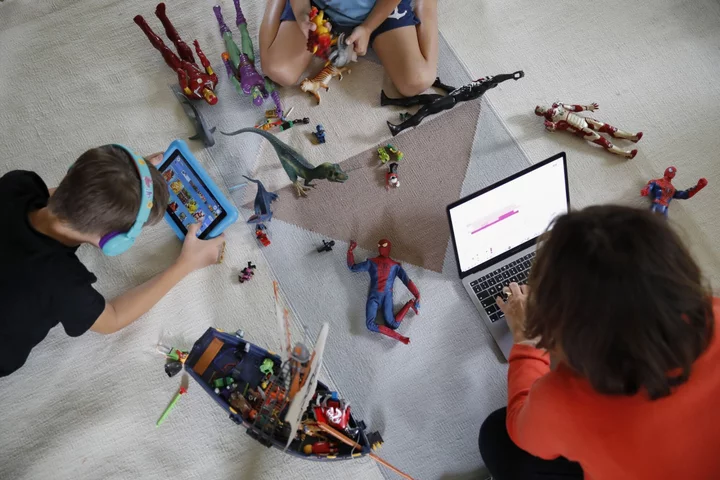The summer holiday season is upon us and airlines are clapping their hands with glee: The US Transportation Security Association expects that the number of passengers will surpass pre-pandemic levels this summer. Over the recent Memorial Day weekend, nearly 10 million people passed through one of America’s 400-odd airports. But the working assumption that everyone is going on vacation is wrong.
That’s because many travelers will be on a so-called workation, part of a growing trend that takes the idea of hybrid working a bit too literally. Billed as part of “work from anywhere” slots, which are increasingly cropping up, they prove that an unhelpful blur is developing between paid and unpaid leave.
This is happening for three reasons.
First, culturally, Americans think holidays are for wimps. Gerri, a key character in Succession, the highly successful HBO drama about an American business dynasty, described a European business rival this way: “They’re soft. Hammocked in their social security net. Sick on vacation mania and free health care. We’ve been raised by wolves.” Not surprisingly less than half of employees use their vacation days and the US is way behind most advanced countries on offering minimum annual leave.
America isn’t so much sick of vacations as phobic about them, a problem stretching back to the early industrial era. As an article published forty years ago in the Industrial Relations Law Journal on the politics of vacations put it tartly: “Parties tend to write ambiguous vacation eligibility provisions.” Wolves don’t need holidays, the argument goes.
Second, fairly genuine attempts are being made to assuage the itchy feet of people who can’t stand to work only from the office. In response, Japan’s Star airlines introduced the “Star Pass” to attract domestic commuters flying in and out of Tokyo for both work and leisure. Although not completely new — back in 2017 a fellow Bloomberg journalist asked the reader if they were “Jealous of well-to-do friends who do their ‘working from home’ at a beach house in the Hamptons?” — the idea has gained momentum since Covid-19.
As I wrote in this column in September: “The pandemic tipped a low rumbling about flexible working into a roar.” This roar shows no sign of abating, signaling as it does a desire for life-work balance in that order.
But the third reason is less well-intentioned than the second, and more in line with the first. The trend to workations can be a backdoor way to keep people working, even when they need to switch off.
A proxy war is raging in the battle between hyper-stressed managers trying to meet the clear employee demand for freedom and the equally clear c-suite demand for presenteeism and monitored work. Perhaps this explains why one in five US companies doesn’t have transparent policies on hybrid working. Yet it’s not just the “soft” Europeans introducing flexible working around the world. Kenya is among the latest to look into to doing so and the “right to disconnect” is at the heart of debate.
So much for the old demarcation of life and work made famous by the chocolate bar Mars television advertising back in 1960 with its slogan “A Mars a day helps you work, rest and play.”
As regular readers of this column will know, I’m a keen advocate of increased flexibility in the workplace — both of flexible mindsets and practices around time and location for getting work done. And I’m all for tightening some unfair (and unhealthy) workarounds: In the UK for instance people are rather scandalized by new research from a nicotine pouch company Hyapp showing that the average smoker ends up with a 20-minute paid break a day, amounting to thirty nine hours a year — about a whole week’s extra vacation.
What I’m not in favor of is slippage between actual time to reset, rest and recharge and working flexibly. Yes, technology assists the always-on camp: PC sales and desktop computers slumped by more than 25% at the end of last year while the global laptop market is expected to rise by 4% (more than 5% in Asia) to $234 billion by 2030. And yes, there is a convenience in having agency to work a bit here and there and not be compelled to burn up vacation days.
But you used to leave your desk and your desktop, once upon a time. And it’s time to reinstate that boundary with your laptop. Once in a while at least.
Julia Hobsbawm is a columnist for Bloomberg Work Shift and founder of The Nowhere Office . Her Nowhere Office podcast series is here. email: jhobsbawm@bloomberg.net

